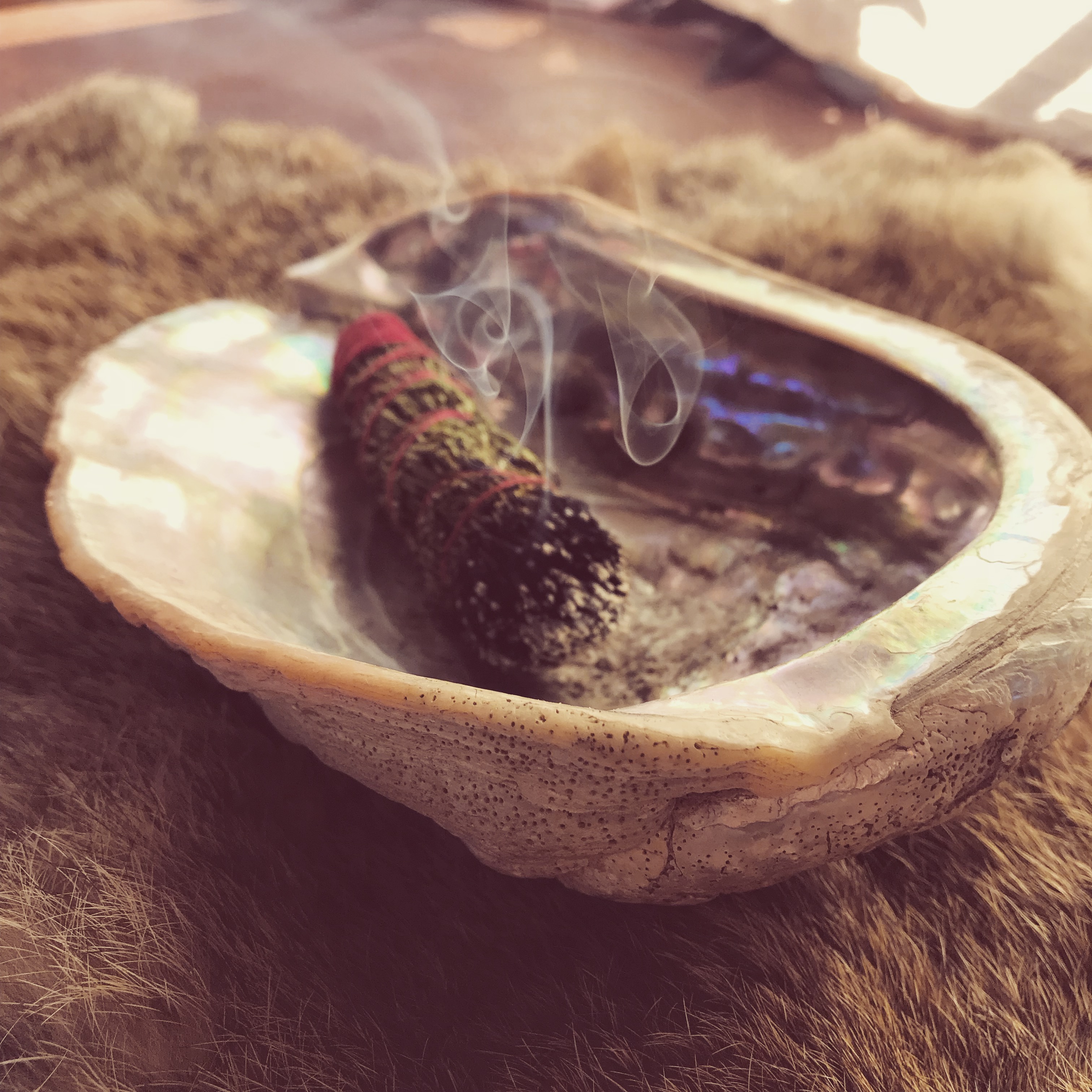It is smoke which feeds the Holy; smoke which nourishes the Spirits of the Land and the Ancestors, both. Smoke is also medicine. Humans have always known this. And even now, we remember how to use it – instinctively, intuitively, and innately. Peoples in every culture have burned aromatic plants as part of their ceremonies, during times of cleansing, for rituals of healing, and to mark passages of initiation. Herbs were burned to welcome new life as well as to provide safe passage and blessing for those who passed over.
Smoke is a prayer, plain and simple, and a song sung in a language much older than words. When the scent of sacred smokes enters our awareness, our nervous systems respond immediately – shifting into a parasympathetic state of relaxation and allowing us to relate from our hearts rather than our heads. Microbes and “bad vibes” alike are neutralized and cleared. This is due to the remarkable antimicrobial quality of aromatic plant smokes and their ability to act as a bridge between the world of spirit and matter. Smoke is such a subtle substance that it cleanses the ethers as well as as the air that we breathe. Working with plants in the form of smoke medicine is a cross-cultural and ancient practice and a simple way to invoke a sense of the sacred.
Just like all forms of plant medicine, the use of these sacred smokes arose out of people’s relationship with the plants as well as the place where they lived. And while local foods are now wildly popular and part of mainstream culture, local herbs all too often go by the wayside. However, we all live in bioregions rich with distinctive flora, many aromatic plants perfect for “smudging” among them. The word “smudging” refers specifically to the Native American tradition of working with aromatic plant smokes. It is a word that is widely (and often inaccurately) used to refer to the use of all smoke medicines, regardless of whether they have their roots in Native American ceremony or not. While aromatic plant smokes are used cross-culturally, it is vitally important to remain sensitive to and actively avoid culturally appropriative terms, practices, and world views. That is why is is so essential to develop a direct relationship with the plants where you live, as well as with the plants that your ancestors may have worked with.
Below is a guide, which I hope will serve you well as you navigate this strange time in the world – where everything is bought and sold — even those most sacred allies which were once reserved as treasured gifts and holy sacraments. May we each call upon our own inner knowing, our own ability to listen, and most importantly, may we approach these plants and this practice from a place of authentic connection rather than uninformed consumption.


